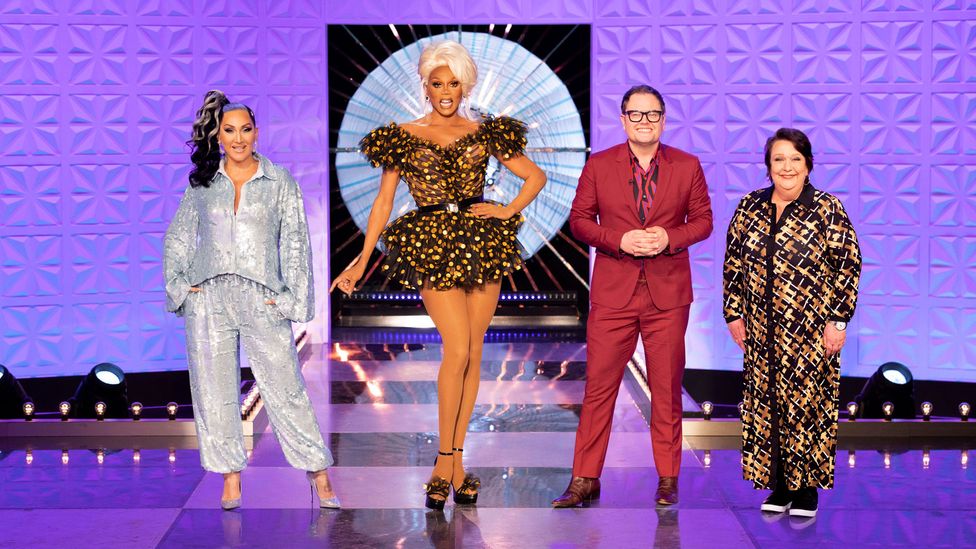In BBC Culture's poll of the greatest series of the 21st Century, one reality show made the list. It's a genre that, for all its issues, merits more recognition, writes Louis Staples.
"One of the best moments of my life was [in 2013] when Made in Chelsea won a Bafta, but it was also one of the most embarrassing moments," reality star and TV presenter Jamie Laing tells BBC Culture. "We stood on stage in front of Olivia Colman and Benedict Cumberbatch and all these amazing actors who had worked their entire lives to get there. And we were winning a Bafta for just being us. It didn't feel right?"
Read more about the 100 greatest TV series of the 21st Century:
– The 100 greatest TV series of the 21st Century
– Why The Wire is the greatest TV series of the 21st Century
– What is the future of the cop drama?
– The dark side of 21st-Century TV comedy
Laing has starred in Made in Chelsea – a structured reality show that captures the tangled romantic lives of a group of privately-educated twenty-somethings in West London – since 2011. He isn't alone in sensing a hierarchy between reality and scripted television. In October, BBC Culture ranked the 100 greatest TV shows of the 21st Century so far, according to the votes of 206 experts, critics, academics and industry figures from 46 countries. Just one entry – number 67, RuPaul's Drag Race – was a reality show.
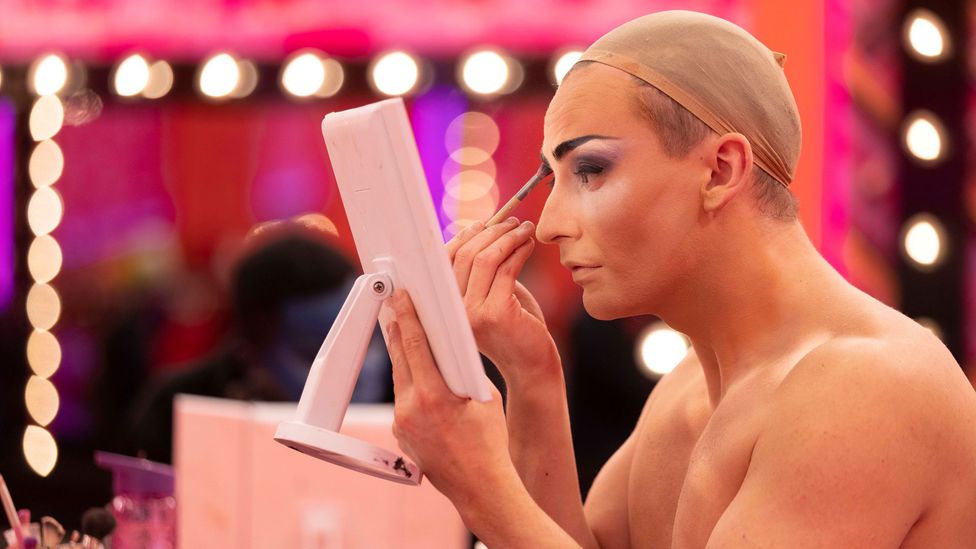
At number 67, Ru Paul's Drag Race was the sole reality show in BBC Culture's poll of the 100 greatest TV series of the 21st Century (Credit: BBC)
It's easy to see why Drag Race made the top 100: it brought drag to the masses and was a significant milestone for LGBTQ+ representation on TV. But why didn't more reality TV make the cut? Big Brother, one of the biggest reality shows ever, didn't qualify because its original Dutch version premiered in 1999. Some hugely popular shows that did meet the criteria were noticeably absent, though. The Great British Bake Off, for example, which has been a hit on the BBC and then Channel 4 in the UK, as well as Netflix in the US. Netflix's revival of Queer Eye – a more caring type of makeover show that attempted to deconstruct modern masculinity – was also excluded. These snubs suggest that, nine years on from the Baftas introducing an awards category for Best "Reality and Constructed Factual show" – of which Made in Chelsea was the second ever winner – reality TV is still perceived by many as a low-quality art form.
While reality TV may not be held in much critical esteem, its growth over the last two decades has been extraordinary. A 2017 study found that a fifth of all primetime TV programmes in the US were reality shows – second only to drama. Its influence on wider culture is undeniable, from the ascension of reality stars to the status of A-list celebrities, like Paris Hilton and the Kardashians – and even, in the case of Donald Trump, to president of the United States. The dawning of the "influencer era" and the merging of news and entertainment feel impossible without it too. As the New York Times put it in March this year: "Reality TV is part of the atmosphere. It is an entertainment genre and lifestyle, career path and political philosophy."
A genre is born
While reality television has truly saturated culture since the turn of the millennium, it first emerged as a distinct genre in the early 1990s. In 1992, MTV series The Real World premiered in the US. The show followed a group of young adults as they temporarily lived in New York together in one home, while being filmed non-stop. As the series changed city with every season, it was radical in its early years for spotlighting diverse perspectives on sex, racism, abortion, politics and addiction.
The Real World wasn't the first reality show. In 1973, An American Family documented the everyday life of a regular American family to an audience of 10 million. But filming people who didn't know each other in an artificial environment was pioneering and marked the point "reality television" started to be used more widely as a term. Kate Aurthur, Editor-At-Large at Variety, tells BBC Culture that The Real World was a "huge" event in her friends' lives: "The cast were all around my age, and seeing Norm Korpi especially – the queer member of the cast – felt to me like change was coming. And it did!" Two seasons later, The Real World featured Pedro Zamora, a gay man who was living with Aids. On the show, Zamora had a civil union that his roommates attended. "It's almost impossible to describe how revolutionary this kind of representation was," Aurthur says. "In those early years, the show made it its mission to represent the spectrum of young people, and there were completely crucial conversations on screen about everything – not only sexuality, but race and sex and religion. The Real World changed the real world."
At the turn of the millennium, the next big reality TV phenomenon in America arrived: Survivor. The show, which began in 2000 and is now airing its 41st season, follows "tribes" of people battling against each other in remote locations. The finale of the first series, which starred 16 Americans in Borneo, was watched by 51 million people in the US. June Deery, professor in media studies at New York's Rensselaer Polytechnic Institute and author of the 2015 book Reality TV, singles out an impassioned speech by season one campmate Sue Hawk accusing her co-stars of being "snakes and rats", as reality TV's first viral moment. "Her sincerity and moral directness stuck in people's consciousness and brought reality TV to everyone's attention," Deery says.
In the same year, Big Brother launched on both sides of the Atlantic. It paved the way for reality TV becoming not just a television genre, but the defining genre of our times. In the UK, the first series saw "Nasty" Nick Bateman being dramatically ejected after breaking the rules. Millions tuned in to watch the house confront Bateman for conspiring against them. The show discovered its own heroes too, and was another example of how reality TV could facilitate LGBTQ+ representation that surpassed most scripted TV at the time: Brian Dowling and Nadia Almada, an openly gay man and trans woman, won the 2001 and 2004 series respectively, by landslide public votes.
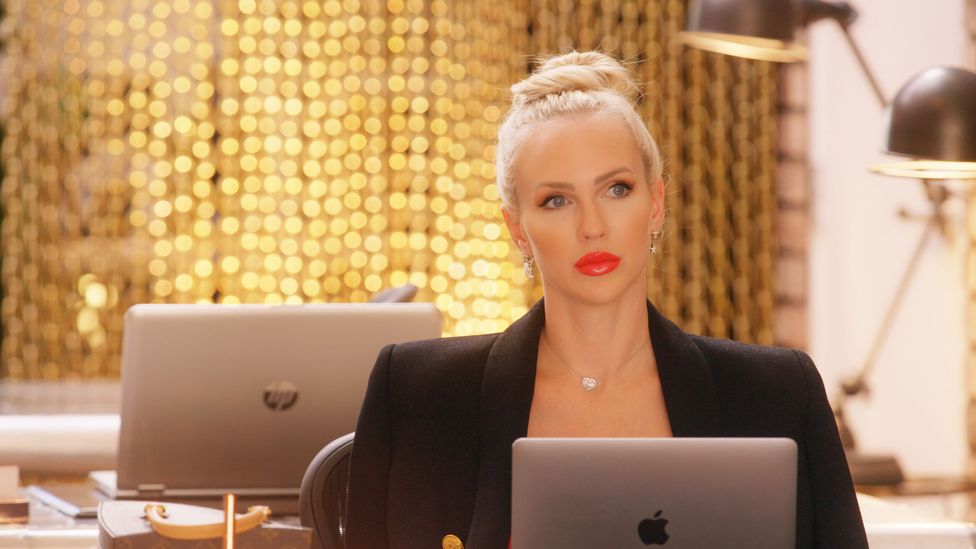
Selling Sunset is the latest reality TV phenomenon to revolve around portraying the lives of the rich (Credit: Alamy)
Reality shows like Big Brother engineered a key shift in celebrity culture, which paved the way for the influencer era of today. A traditional "talent" – like singing or acting – was no longer a prerequisite for the spotlight. Even with notionally talent-based reality shows, like singing contests American Idol and The X Factor, their greatest selling-point was the "rags to riches" narrative. "Normal" people would offer emotive backstories on their way to having their lives transformed, while being at the mercy of the public vote and the press.
Following the money
With "ordinary" people becoming rich and famous on reality TV, the already-rich and already-famous then began to capitalise on it too. Those who were already considered "celebrities" started putting themselves forward to be judged and voted for on shows like Celebrity Big Brother, I'm A Celebrity Get Me Out of Here and UK/US sibling shows Strictly Come Dancing and Dancing with the Stars.
If the initial thrill of reality TV lay in the idea that anyone could become a star, the paradigm of it soon shifted to become less egalitarian. In 2003, The Simple Life made Paris Hilton an early example of someone who was known for being "famous for being famous". In 2006, MTV's The Hills had the same effect on a group of wealthy Californian teenagers. The same year, Bravo's Real Housewives franchise was born, following rich ladies-who-lunch in Orange County first, then in many other places across the US and beyond.
Netflix's Selling Sunset, whose fourth season launched last week, is the latest successful reality show that revolves around watching rich people do things. The series follows a group of wealthy realtors-turned-influencers as they try to sell houses to even richer people. It was created by Adam DiVello, who also made The Hills, and once again his brainchild has turned already wealthy people into celebrities. It's easy to see why well-off people would leap at the chance to appear on TV, with the potential of fame and more money on offer. But what do viewers get out of watching them? A simultaneous mix of fantasy, escapism and schadenfreude, perhaps. "For most of us it’s perhaps secretly satisfying to learn that the wealthy also have lots of problems – and sometimes their problems are even worse than our own," Jeff Jenkins, executive producer of Keeping up with the Kardashians, told The Guardian.
In the UK, Made in Chelsea has been following the lives of imperfect rich people since 2011. "Only 1% of people go to boarding school, so I think people wanted to laugh at us, but they also wanted to laugh with us," says Laing, reflecting on its appeal. He also confesses that the cast weren't actually as wealthy as it seemed. "What people didn't realise was that all of our parents were wealthy, but most of us hadn’t seen that money! Everyone just assumed that we had all these millions and our fingertips, which most of us didn't."
It is common for reality stars to be presented as richer than they are, or go to extreme lengths to create that image themselves. By staging an image of wealth on TV, more opportunities to make money often arise. Deery argues that reality TV's celebration of ostentatious wealth has really fed consumerism in the 21st Century. "Makeover shows, wedding shows and real estate shows [encourage the escalation] of levels of consumption in highly emotive situations which override rational financial considerations," she says. Crucially, though, many reality TV formats have advanced the notion of self-commodification too. "They demonstrate how ordinary individuals can turn themselves into a brand, a concept then amplified by the increased use of social media."
Self-commodification is everywhere on reality TV. Queer Eye turned its experts into a squad of queer mega-influencers, while RuPaul's search for the "next drag superstar" solidified his status as the biggest drag superstar of all. Laing is an example of it too: he was one of the first British reality stars to launch a successful business on reality TV (sweet company Candy Kittens). But despite being told he was "too posh" to present TV before the show, he also saw the platform as a "doorway" to brand himself as a presenter. "This is what I call the Matthew McConaughey philosophy", Laing says. "He was doing loads of rom-coms, but then won an Oscar for something completely different. As a reality star, you’re similarly type-cast. So it's important to pick and choose what you do to break out of that."
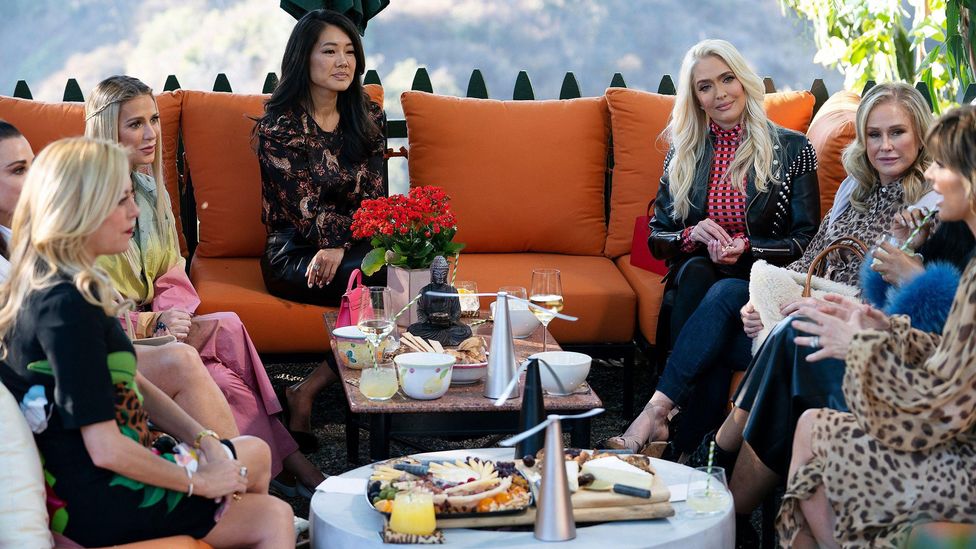
The Real Housewives franchise has tried to move with the times, including discussion on topics from homophobia to misogynoir (Credit: Alamy)
Self-branding plays out even more dramatically on the Real Housewives franchise. Since Bethenny Frankel, who was one of the original Real Housewives of New York City, made it big with Skinnygirl, a cocktail company she founded on the show and eventually sold for a reported $100m, the franchise has become a marketing machine for women who are keen to cash-in by casting themselves as moguls-in-waiting who "have it all". There's now reportedly a "Bethenny Clause" in all Bravo contracts, which stipulates that if one of its stars sells a business they promoted on a show for more than $1m, the network takes a cut. The genre's enabling of self-commodification is personified by Donald Trump's use of The Apprentice to market himself as a formidable business success – a springboard into the public eye that arguably set him on his way to becoming president. "After his time on The Apprentice, reality TV's ultimate example of product placement was Donald Trump," as Deery puts it.
On the flipside, reality TV has allowed the rich to monetise their supposed "relatability" too. A key example of this is Keeping Up with the Kardashians. The Kardashians began their E! reality show in 2007 as an already wealthy family, whose constant arguing was nevertheless familiar. Their unfiltered brand created a perceived friendship with their fans, which they became experts at capitalising on, using their blend of aspirational glamour and relatability to become billionaire moguls in the new social media ecosystem. Earlier this year, the family brought the show to a close, leaving behind the platform that made them famous – but also, finally, the pretence that they were "just like us".
Where the genre is now
Many reality TV shows were sold initially to viewers as a "social experiment". However that pretence has been increasingly discarded as the genre has embraced obvious contrivance. Around a decade ago, "structured reality" became the buzzword for shows like Made in Chelsea that, while featuring "real" people, offered elaborate camerawork, storylining, editing and disclaimers that some scenes had been created for entertainment purposes. "[At the time] Made in Chelsea was different to most other reality shows because it was shot in a completely different style," Laing says. "It was shot like a drama and everything was filtered and looked amazing. That hadn't been seen before in a reality show."
Today, from Selling Sunset to Love Island, reality shows are often self-consciously artificial, playing with narrative devices and wringing emotion from the viewer with carefully judged soundtrack choices. Some even lean into the contrivance so much as to become a meta-commentary on themselves: the Housewives franchise has recently expanded to include "Girls Trip" spin-off, which brings cast members from different shows together. The all-star mini-season shattered the "fourth wall", with the women speaking in detail about how reality TV and fame has affected their lives.
At the same time, viewers have become more sophisticated. Most are happy with the fact that the "reality" of "reality TV" is loose at best – it's a product they're being sold. Deery calls this "staged actuality" – the tension between the actual and the staged. She thinks part of the allure of reality shows is their fakeness, or working out which bits are real as we watch: "There is a coyness about reality TV's faux authenticity that encourages people to think about how content is made and for what purpose." It is true that the structured reality genre expanded rapidly even after the sub-genre's breakout hit, The Hills, notoriously implied that the show was scripted during its final episode.
While the artificiality of reality TV may be pleasurable in some respects, it has also presented ethical dilemmas. On this summer's series of UK Love Island, fans complained that the early weeks of the show were boring. But many viewers then responded very negatively when producers intervened with challenges designed to remedy this and create conflict. This is a typical conundrum facing producers: fans want drama, but they don't want to participate in anything that feels overly engineered or exploitative either. "We want the audience to be engaged, but we don’t want them to be outraged," Alex Baskin, producer of the Real Housewives of Beverly Hills, told Vulture in an article about the future of the Bravo network. "The audience has been really clear that they do expect us to take some accountability for the people that we have on the air."
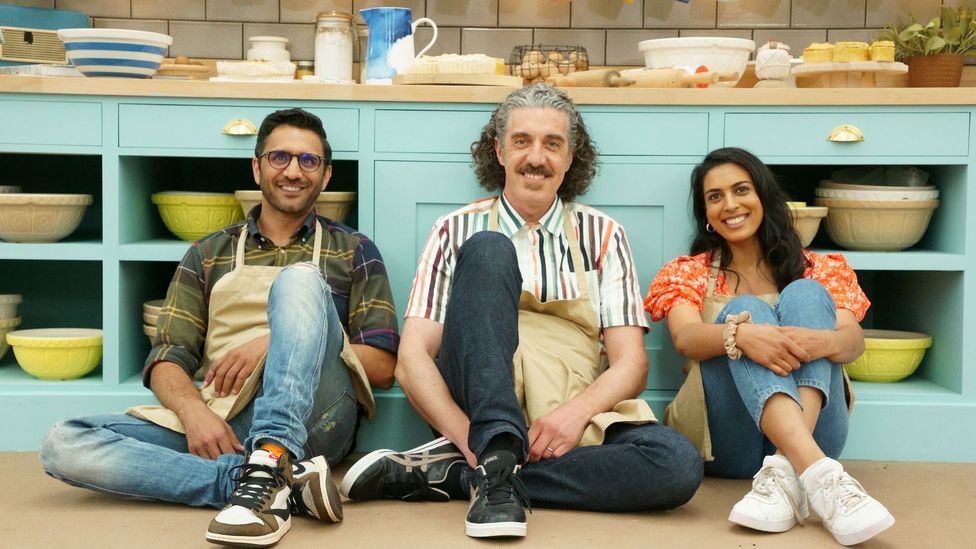
The success of The Great British Bake Off has proved that camaraderie and kindness can triumph in reality TV (Credit: Alamy)
The question is: can reality TV, with manipulation of reality at its heart, be truly ethical? In 2019, British reality TV was described by the New York Times as a "theatre of cruelty" for its approach to reality star welfare. Recently, there have been some attempts to respond to these criticisms. Shows like The Only Way is Essex in the UK and Vanderpump Rules in the US, which were accused of giving contestants "villain edits" and also normalising "toxic" behaviours, have spotlighted storylines about addiction and mental health. But it's legitimate to question how far this more compassionate revamp of the genre can go when there is an inherent power imbalance between reality stars and the shows they appear on, their participation is often dependent on creating drama and their behaviour can be presented in any number of ways.
There has also been a concerted effort for even these flashier, more consciously contrived reality shows to better reflect the world we live in. Drag Race has embraced trans and cis women as contestants in its US and UK franchises. Bravo in particular – the US network behind Top Chef, Project Runway and Real Housewives – has diversified formerly overwhelmingly white casts in response to national reckonings on race and politics over the last few years. This has had mixed success: some stars have been fired and shows have been cancelled because of race controversies, but important on-camera discussions have taken place too about issues like colourism and misogynoir. Fan responses to topics like this appearing on their favourite shows have varied, from celebration to scepticism and rejection, prompting debate about what reality TV should be. Almost 30 years on from The Real World, the genre is circling back to some of the show's founding principles – and figuring out its place in the real world.
It will also continue to have a resounding impact on that real world too. No matter how frivolous they might appear at first, the best reality TV shows disrupt the status quo in some way within the TV ecosystem and beyond – like the Great British Bake Off proving that camaraderie and kindness can triumph over cut-throat competitiveness. Moving forward, we can expect more of this. "One of the remarkable things about reality TV is its tenacity," Deery says. "What was first thought of as a temporary fad, a low-risk way to fill summer schedules, has led to some series that are among the longest running and most successful in television history."
Despite this success, it is undeniable that most reality shows aren't critically-acclaimed and reality TV at large is still perceived as low quality. This is unlikely to change while the genre continues to be judged by its worst output. Perhaps some of the scepticism towards the medium is really a discomfort at how quickly reality TV has changed the world – for better and worse. We have seen how easily it can hold a mirror up to us, which can accelerate positive change, but also exaggerate or even celebrate societal ills. For wielding such power, while navigating complicated ethics of working with real people, the best reality TV deserves more credit than it gets.
Read more about the 100 greatest TV series of the 21st Century:
– The 100 greatest TV series of the 21st Century
– Why The Wire is the greatest TV series of the 21st Century
– What is the future of the cop drama?
–The dark side of 21st Century TV comedy
How many of these series have you seen? Let us know using the hashtag #TVOfTheCentury on our Facebook page or message us on Twitter.
Love film and TV? Join BBC Culture Film and TV Club on Facebook, a community for cinephiles all over the world.
And if you liked this story, sign up for the weekly bbc.com features newsletter, called The Essential List. A handpicked selection of stories from BBC Future, Culture, Worklife and Travel, delivered to your inbox every Friday.
